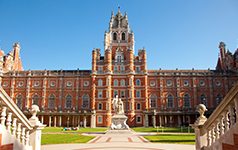10 interesting things about Hungary
10 interesting things about Hungary
- The 1st subway line of continental Europe was built in Budapest.
- The beautiful city of Budapest is made up of 2 parts – Buda and Pest – which are separated by the Danube river.
- The Hungarian Parliament is the 3rd largest parliament building in the world, with 691 rooms and 20 kilometres of stairs.
- Hungary is one of the best birding areas in Europe: almost 400 bird species breed here.
- Amongst the many Hungaricums 5 are related to Hungarian gastronomy.
- Covering almost 600 square kilometres, Lake Balaton (nicknamed “the Hungarian Sea”) is the largest lake in Central Europe.
- Each day, 70 million litres of thermal water rise to the surface in Budapest.
- Hungary ranks 8th in the world for medallists at the Summer Olympic Games.
- The oversized snail-shaped egg noodles (csiga) that Hungarians use in many recipes are thought to date back to the 9th century.
- Hungary has 10 national parks, 145 minor nature reserves and 35 landscape protection areas
Higher Education system in Hungary
The Hungarian higher education is split to a system of colleges and universities, where colleges are directly affiliated with a university and operate as college faculties of the university. Universities generally award both college and university level courses. In the old system, college level training lasts three to four years, whereas a university degree takes at least four years to complete and at most 5 years with the exception of the six year long medical program. Further, university studies were split in three stages roughly corresponding to the bachelor, master and PhD courses but with longer study periods.
Starting in 2005 and 2006, Hungarian institutions of higher education have started the transformation toward the regulations of the Bologna system. In the new system, both colleges and universities may launch bachelor, master and PhD programs provided that the necessary requirements are fulfilled. This also means that all awarded degrees are equivalent and transferable throughout the EU and many other countries.
As in other countries, some qualifications will not be available at bachelor level, but instead start with the award of a master degree. Examples of such qualifications are: medical studies, veterinary science, pharmaceutical studies and architecture to name a few.
Bachelor Program
General Entry Requirements
- H.S.C CERTIFICATE AND TRANSCRIPT
- Language proficiency ( English B2 or Proven higher education in English or a reasonably long stay in an English-speaking country are also acceptable).
Masters Program
General Entry Requirements
- A Bachelor/ equivalent degree
- Language proficiency ( English B2 or Proven higher education in English or a reasonably long stay in an English-speaking country are also acceptable).
PHD Program
General Entry Requirements
- Bachelor/ equivalent degree
- Language proficiency ( English B2 or Proven higher education in English or a reasonably long stay in an English-speaking country are also acceptable).
Deadlines
Before you make your decision, always read the entry requirements for the degree programme you are applying for. Application period and exact dates for self-financed foreign students usually vary from one institution to another so first contact the chosen university to find out any relevant information. The deadline for the first round of admission procedures is usually in November for those classes that commence in February while the second round of admission procedures is in February for classes commencing in September.
Entry and Admission Requirements
Entry and admission requirements in Hungary follow the standards of the Bologna Process. This means that a Bachelor’s degree must be obtained to have access to Master’s and PhD courses. To be eligible for a BA degree you must have your language proficiency certificates, your diploma and other documents required by the programme.
To apply for a Residence Permit for the Purpose of Study you must visit the local Embassy of Hungary in your country to issue the documents you need for entering Hungary as schools may also require some of these documents to accept your application. You will need a copy of your high school diploma to justify the eligibility for higher education studies.
Generally, you’ll need the following documents to be submitted:
- an up-to-date CV
- a letter of motivation
- copy of your passport / ID
- proof of language proficiency
- English translation of transcripts of records
- English translation of obtained diplomas
- two academic reference letters
To apply for a Bachelor’s degree (3 years) prospective students need to possess a high school diploma translated into Hungarian or English with the corresponding transcript of courses and grades. Some courses may also require an entrance exam besides submitting these documents.
For a Master’s degree (2 years) application applicants have to submit the photocopy of their Bachelor’s diploma and probably have to take an entrance exam.
If someone wishes to obtain a PhD degree (2+2 years), the minimum requirement is to have a university degree which is equivalent to a master’s degree. The prerequisite for entering doctoral courses is an MA/MSc degree or an equivalent to an MA/MSc degree. Within a Doctoral programme, you need to complete 240 credits within 4 years of study. At the end of the fourth semester, a final examination must be taken. After a successful examination, the last 2 years of the doctoral programme are about conducting the research and writing your dissertation, which can be extended with one more year.
Institutions in Hungary rank the applications based on applicants’ previous studies and the grade point average (GPA), also experience in work and research might be required by some institutions.
In order to be admitted to a Hungarian higher education institution, prospective students must demonstrate that they meet certain requirements. Although there is a general system of entrance the entry requirements may differ at certain higher education institutions therefore always check the conditions in each institution before applying.
Tuition fees
Compared to the rest of Western Europe, tuition fees in Hungary are very affordable.
Tuition fees vary depending on the selected university and study programme but below you will find a starting point for your further studies and an opportunity to see the bigger picture. To obtain accurate information regarding tuition fees visit the website of the chosen university.
Tuition fee for Non-Eu: 2500 € -8000 €/ year
National Visa
Residents of the rest of India, and citizens of Bangladesh, Bhutan, Maldives, Nepal, and Srí Lanka should apply for residence permit at the Embassy of Hungary to India in New Delhi Visa Section (adjacent to Niti Marg) Chanakyapuri, New Delhi – 110021). Appointment can be arranged by email: visahungary.del@mfa.gov.hu
Student Visa document checklist
- Dully filled and signed application form for residence permit and Appendix 14 –find it on the website of Immigration and Asylum Office of Hungary.
- Valid passport with the previous (old) passports (at least 2 blankpages in the valid passport are needed and the passport has to be issued within the previous 10 years) Passport must be valid until the end of your course.
- 2 passport-sizephotos (not older than 3 months)
- Flight booking
- Accommodation proof for the whole period of stay
- Valid insurance (just travel insurance, if general insurance will be provided by the university/college)
- Bank statement (of your sponsor) about the last 6 months, counting from the date of your interview
- Proof of income (of your sponsor) –please note, that land registration sheet cannot be accepted as a liquid fund. Any proof of the regular income of your sponsor: job letter from his/her employer, salary slip (ofthe last 3 months), recommendation letter of the previous employers. In case of own business: certificate about the registration of the company, tax return of the last 2 years, any export/import document which can prove the sponsor’s business, etc. In case of retirement: pension letter with pension slips about the last 3 months. Please acknowledge that ‘Affidavit’ about the sponsorship is only a secondary supporting document, not primary!
- Declaration of financial support from the family member (sponsor
- Valid acceptance letter issued by the university/college
- School certificatesissued by the public authorities of Bangladesh has to be legalised by the Ministry of Foreign Affairs of Bangladesh
- Family Registration Certificate in English issued bythe public authorities of Bangladesh has to be legalised by the Ministry of Foreign Affairs of Bangladesh
- Birth Certificate in English issued by the public authorities of Bangladesh has to be legalised by the Ministry of Foreign Affairs of Bangladesh
- Clear character certificate issued by competent police department
- CV in English
- Signed motivation letter in English
- Certificate from your Study Consultant, if any
- Police report about lost passport, if any
- accept only original documents!
Scholarship opportunities, full and partial degree programmes at Hungarian higher education institutions and universities for international students.
Scholarships in Hungary
Work in Hungary as a student
Are you thinking about working in Hungary during your studies?
Some of you might decide to work part-time during your studies or in the summer holiday to finance your living costs or to gain valuable work experience. Currently, depending on your citizenship, there are different rights and obligations.
- If you are a student coming from an EEA state (member states of the EU and Norway, Switzerland, Iceland, and Lichtenstein), there is no limitation regarding the working hours and you need to hold a registration card.
- If you are a citizen of a country that is not part of the European Economic Area (non-EEA state), you can be employed during your studies with a residence permit for study purposes and work 24 hours a week during your study period, or 90 days or 66 working days outside your study period.
Reasons for finding a job during your studies:
- employers provide flexible working hours and conditions for students (part-time, 4 or 6 hours / day)
- you can finance your living alongside your monthly stipend
- you gain work experience
Careers offices
Most higher education institutions in Hungary have their own careers offices where students can obtain information regarding available jobs. These offices offer job opportunities through databases as well as organising programmes for students looking for jobs, and they help you with career planning and management.





















